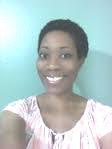 Renee Simms
Renee SimmsAbout a year ago, a colleague posted a Facebook status update that linked to “The Disadvantages of an Elite Education,” by William Deresiewicz, an essay that was a few years old back then. I clicked on the link and read. Deresiewicz’s writing is lucid and interrogating, his essays have gone viral and he has just expanded them into a new book, Excellent Sheep: The Miseducation of the American Elite, about the shortcomings of an Ivy League education.
The “Disadvantages” essay begins with an encounter between its author, then 35, and a Boston plumber. He writes, “There he was, a short, beefy guy with a goatee and a Red Sox cap and a thick Boston accent, and I suddenly learned that I didn’t have the slightest idea what to say to someone like him. So alien was his experience to me, so unguessable his values, so mysterious his very language, that I couldn’t succeed in engaging him in a few minutes of small talk before he got down to work.” This happens, the author acknowledges, even though he is a highly educated man.
From there, the essay, much like the new book, explores how our nation’s elite school pipeline perpetuates the class system, discourages humanism and denies graduating students the opportunity to contribute to society as individuals with uniquely cultivated talents. I remember thinking that Deresiewicz, a graduate of and former professor at elite schools, was brave in addressing this subject. I appreciated his essay’s smaller observations as well: the consideration of how “wrought iron portals” and “stone facades” on elite campuses contribute to class-based thinking.
But I found myself furiously writing comments in the margins and arguing with the author in my head. What sparked this ire was a sense that Deresiewicz was writing about truths that others have identified, but his writing occurred within a cultural vacuum. Why, I wondered, was he not linking his observations to scholarship that explores the ways in which class and race are enmeshed in our educational system or which propose new frameworks for achieving diversity in higher education? Given his encounter with the plumber, wasn’t that a logical line of inquiry?
Finally, it occurred to me what is the central irony of Deresiewicz’s work. He critiques the elite for an intended audience of elite, but without connecting the inadequacies of places like Yale to wider causes and wider movements for diversity and educational reform. In fact, the essay that I read took a broad step away from such analyses when it stated, “I’m not talking about curricula or the culture wars, the closing or opening of the American mind, political correctness, canon formation, or what have you. I’m talking about the whole system in which these skirmishes play out.”
I appreciate a narrow focus in writing, but I don’t think it’s intellectually honest to discuss how elite education reproduces more elite without considering how race, societal values or the study of primarily White canons help to reproduce this status quo. The homogeneity on college campuses and elitist values that Deresiewicz criticizes are not created solely because of a culture of test prep courses, standardized testing, the old-boy network and a privileging of capitalist values in academia, as he seems to suggest. They are also the result of cultural biases including issues of race. This is where the scholarship of critical race theorists and social justice writers could have been of value. Critical race theory offers us a way of analyzing systems from the point of view of subordinated groups as opposed to those who are privileged by the system. Why did Deresiewicz not incorporate such views? I can only deduce that this is blindfolded elitism (or “Ivy retardation,” as Dersciewicz himself put it) at work: assuming that one’s view “from above” is quite sufficient in itself, needing no input from those ensnared in the jumble of class-based education.
I also wanted Deresiewicz to offer practical talk about solutions, and my early hope that his book would venture into this territory seems to be dashed, based on the reviews. How on earth do we change the system so that those of us who believe in imagination, courage and intellectualism can help students cultivate these traits? If we don’t change the current system, we will send those students who dare to think for themselves into a world that is indifferent and sometimes hostile to their humanism.
A humanist approach to life does not have to end badly, but I will not romanticize it. Art and community work don’t pay well, and being poor is hard. If we’re going to talk seriously about educational reform, humanism, and revolutionary pedagogies, let’s include the experiences of marginalized communities, and let’s offer concrete solutions to the homogeneity, intellectually and otherwise, found on most college campuses.
The problems in higher education may vary from one institution to another, but I would like to believe that we are all interested in the same outcome. Like Deresiewicz, I want to help students become empathetic, engaged, critical and capable of moral transformation of our society. I want this for all students and I believe it requires us to critically engage with race, class and difference. To quote Deresiewicz’s essay, which quotes the Roman playwright Terence, “Nothing human is alien to me.”
Renee Simms is a visiting assistant professor of African American Studies at the University of Puget Sound.















